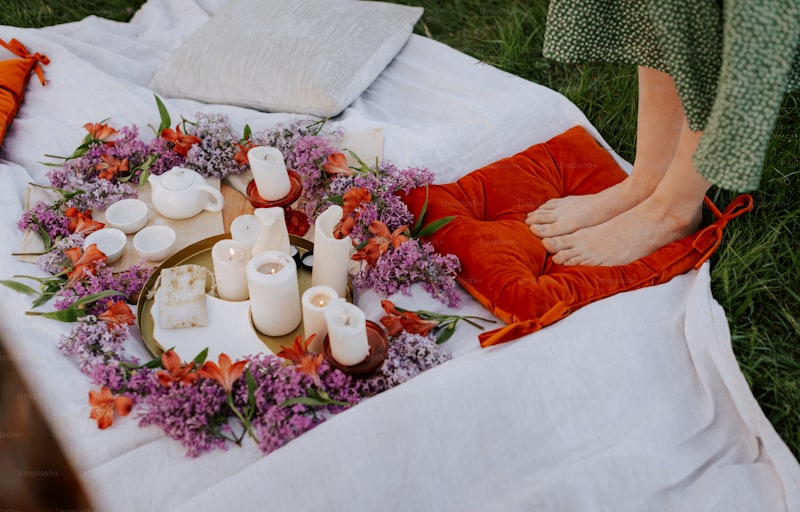Exploring the Religious Significance in Traditional Weddings
Weddings are not merely celebrations of love; they are deeply rooted in cultural and religious significance. Across various societies, traditional weddings embody customs and rituals that reflect the beliefs and values of their communities. In this article, we will delve into the religious implications associated with traditional weddings, examining how these practices vary across different cultures and faiths. Furthermore, we will touch on related questions that individuals may have when exploring this subject.
Understanding Religious Significance
For many cultures, the rituals associated with traditional weddings serve as a bridge between the physical realm and the spiritual world. From the lighting of candles to the recitation of sacred texts, every element of a traditional wedding is steeped in meaning, designed to invoke blessings, prosperity, and divine guidance for the couple.
The Role of Religion in Weddings
The marriage ceremony is among the most important rites in many religions, symbolizing a union not just of two individuals, but also of their families and communities. Various religions carry unique conventions that highlight their teachings and beliefs.
1. Christianity
In Christian weddings, the sacrament of marriage is regarded as a holy institution. Traditionally, vows are exchanged in the presence of God, signifying the commitment of the couple under divine oversight. The inclusion of biblical readings and prayers emphasizes the spiritual significance of marriage.
2. Hinduism
Hindu weddings are elaborate affairs that usually span several days and include various rituals. The primary ceremony, known as 'Saptapadi,' involves the couple taking seven steps together, each step symbolizing a specific vow. The presence of sacred fire (Agni) is crucial, as it is considered a witness to the vows exchanged.
3. Islam
Islamic weddings, or 'Nikah', involve a formal contract between the bride and groom, including a dowry. This ceremony includes readings from the Quran and often features communal prayers, emphasizing the significance of faith in the union.
4. Jewish Traditions
Jewish weddings incorporate various customs such as the breaking of the glass, which symbolizes the destruction of the Temple in Jerusalem and the fragility of relationships. The Chuppah, or bridal canopy, represents the home the couple will build together, highlighted by the presence of friends and family.
Table of Religious Wedding Elements
| Religion | Key Rituals | Spiritual Significance |
| Christianity | Exchanging vows, readings from the Bible | Commitment under God |
| Hinduism | Saptapadi, Fire as a witness | Spiritual bond and divine blessings |
| Islam | Nikah contract, Quran readings | Contractual spiritual union |
| Judaism | Breaking glass, Chuppah | Fragility and community presence |
As this table illustrates, the elements found in traditional weddings differ significantly among various religions, each carrying profound spiritual significance and symbolic meaning.
Modern Influences on Traditional Weddings
With globalization and the increasing interconnection of cultures, traditional weddings see modern adaptations while still retaining their core religious significance. Couples today often blend traditions from different cultures, creating unique ceremonies that respect their heritages yet reflect their personal identities.
Challenges of Maintaining Tradition
While modern influences can enrich wedding ceremonies, they can also pose challenges regarding the adherence to religious customs. Some individuals may feel torn between following traditional practices and accommodating contemporary preferences. It's essential for couples to communicate, finding a balance that respects both their historical and personal values.
Frequently Asked Questions About Religious Significance in Traditional Weddings
Here are common questions people may ask regarding the religious significance in traditional weddings:
1. What defines a traditional wedding?
A traditional wedding typically includes customs and practices that are specific to a culture or religion, encompassing rituals, ceremonies, and practices that have been passed down through generations.
2. How do couples ensure their wedding respects their religious traditions?
Couples can consult with religious leaders or family members familiar with the tradition, as well as research the customs relevant to their religion, ensuring each component is honored during the ceremony.
3. Can religion play a role in non-religious weddings?
Yes, many couples incorporate religious elements to honor their heritage or to gain blessings, even if they identify as secular or non-religious. This might include readings or blessings that resonate with their backgrounds.
4. What should couples consider when blending traditions?
Couples should openly communicate about their cultural backgrounds and values, seeking to integrate elements that are meaningful. They should also consider their families' sentiments about both traditions involved.
Conclusion and Recommendations
Understanding the religious significance of traditional weddings is crucial for couples preparing for their big day. These ceremonies represent more than just personal commitments; they honor cultural heritage, familial bonds, and spiritual beliefs. Couples should actively engage with their traditions, finding ways to honor their customs while considering modern influences.
For those planning their weddings, it is recommended to:
- Research and discuss the religious customs that are significant to you and your partner.
- Consult with family members or religious leaders to ensure adherence to traditions.
- Communicate openly about how to incorporate both partners' backgrounds in the ceremony.
- Remain flexible and open-minded, allowing for personal interpretations of traditional practices.
In summary, the religious significance in traditional weddings serves as a powerful reminder of the importance of community, culture, and faith in the journey of marriage. By honoring these traditions, couples not only celebrate their love but also the rich history from which they come.
